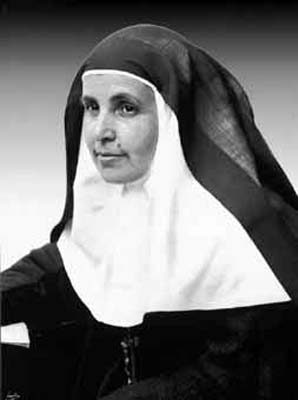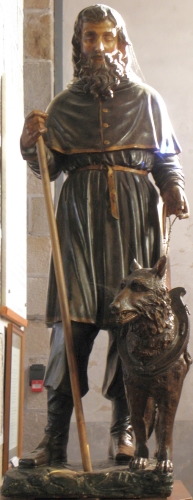Saint Hunna was born in Alsace in eastern France. She was the daughter of a duke and born into “a privileged life”. She married Huno of Hunnaweyer, a nobleman and aristocrat. They had one son.
Her family was influenced by the former bishop and hermit Saint Deodatus of Nevers, who inspired her to serve her poor neighbors. In addition to caring for her family, home, and estate while her husband traveled for political and diplomatic reasons, she spent her time in prayer and visited her neighbors daily, caring for the sick and providing them with religious instruction, cooking, cleaning, bathing, and childcare, as well as washing and replacing their clothes, which earned her the name the “Holy Washerwoman”.
Scholar Jane Tibbetts Schulenburg placed Hunna in the tradition of what she called the “domestic saint” or “holy housekeeper”, pious and noble women in the Middle Ages, who like Hunna, conducted public roles such as founders and abbesses of convents, but whose “popular and local fame rested on her pious activity of washing the clothing of the poor”, from where she received her nickname. Hunna is the patron of laundresses
Sources:
https://en.wikipedia.org/wiki/Hunna
Dunbar, Agnes B.C. (1901). A Dictionary of Saintly Women. 1. London: George Bell & Sons. p. 397.








